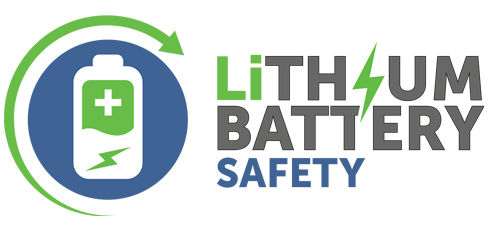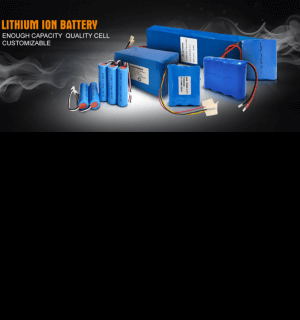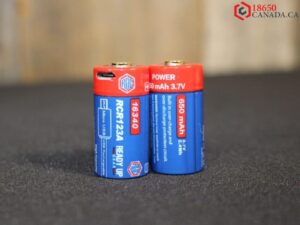Lithium-ion batteries have become an integral part of our modern lives, powering our smartphones, laptops, electric vehicles, and more. While they offer numerous benefits, it’s essential to prioritize safety when using and handling these batteries. This article will explore key safety considerations associated with lithium-ion batteries and provide guidelines to ensure their safe usage.
The article emphasizes the importance of prioritizing safety when using lithium-ion batteries. It highlights key considerations such as proper charging practices, avoiding mechanical damage, temperature management, safe storage and transportation, disposal and recycling, regular inspections and maintenance, and promoting user education and awareness.
By adhering to these guidelines and seeking professional assistance when needed, users can mitigate potential risks and ensure the safe and responsible usage of lithium-ion batteries in various applications.
Understanding the Risks
Lithium-ion batteries have the potential for thermal runaway, a phenomenon that can result in overheating, combustion, or even explosions. Understanding the risks associated with these batteries is crucial for safe usage. Manufacturers employ various safety measures, such as battery management systems and thermal management systems, to minimize these risks. However, users must also take precautions to mitigate potential hazards.
Proper Charging Practices
One of the critical factors in ensuring the safety of lithium-ion batteries is following proper charging practices. Overcharging or undercharging can lead to performance degradation, reduced battery life, and safety hazards. It’s essential to use chargers specifically designed for lithium-ion batteries and adhere to the manufacturer’s recommended charging procedures. Avoid leaving batteries connected to chargers for extended periods or charging them in excessively hot environments.
Avoiding Mechanical Damage
Mechanical damage to lithium-ion batteries can compromise their safety. Avoid dropping, crushing, or puncturing batteries, as it can damage their internal structure and cause leakage or thermal runaway. Use protective cases or covers for portable devices that utilize lithium-ion batteries to minimize the risk of physical damage.

Temperature Management
Temperature plays a crucial role in the performance and safety of lithium-ion batteries. Avoid exposing batteries to extreme temperatures, both high and low, as it can impact their efficiency, capacity, and overall lifespan. High temperatures can accelerate the aging process and increase the risk of thermal runaway, while extremely low temperatures can reduce battery performance. Store batteries in a cool and dry environment, away from direct sunlight or sources of heat.
Safe Storage and Transportation
Proper storage and transportation of lithium-ion batteries are essential to prevent accidents. When storing batteries for an extended period, ensure they are at a partial charge (around 40-60%) to minimize stress on the cells. Store batteries in a cool and well-ventilated area, away from flammable materials. When transporting batteries, use designated storage cases or containers to prevent physical damage and short circuits.
Disposal and Recycling
When it’s time to dispose of or recycle lithium-ion batteries, it’s important to do so responsibly. Improper disposal can harm the environment and pose risks to human health. Many communities have designated recycling centers or drop-off locations for batteries. Check with local authorities or recycling facilities to ensure proper disposal methods are followed.
The Reliable Performance of BAK N21700CG 15A 5000mAh Lithium-ion Battery
When it comes to ensuring safety with lithium-ion batteries, the BAK N21700CG 15A 5000mAh battery is a standout choice. With its advanced safety features and robust design, this battery provides peace of mind in various applications.
Equipped with high discharge capabilities and a generous capacity, the BAK N21700CG ensures reliable power for devices such as electric vehicles, power tools, and energy storage systems. Its built-in safety mechanisms, including overcharge and over-discharge protection, temperature monitoring, and short circuit prevention, safeguard against potential hazards.
Trust in the BAK N21700CG 15A 5000mAh battery to deliver not only exceptional performance but also a paramount commitment to safety, making it an ideal choice for your lithium-ion battery needs.
Resolution
Prioritizing safety is crucial when utilizing lithium-ion batteries. Understanding the risks, following proper charging practices, avoiding mechanical damage, managing temperature, and ensuring safe storage and transportation are key steps to minimize potential hazards. By adopting these safety measures, we can harness the benefits of lithium-ion batteries while ensuring a safe and sustainable energy future.
FAQs
Are Lithium-Ion Batteries Safe to Use?
Lithium-ion batteries can be safely used when proper precautions and guidelines are followed. Understanding and adhering to safety practices minimize the risks associated with these batteries.
Can Lithium-Ion Batteries Explode?
While rare, there is a risk of thermal runaway in lithium-ion batteries, which can lead to overheating and, in extreme cases, explosions. Adhering to proper usage, charging, and storage practices significantly reduces this risk.
Can I Overcharge a Lithium-Ion Battery?
Overcharging lithium-ion batteries can cause damage, reduce their lifespan, and pose safety risks. It is important to use chargers specifically designed for lithium-ion batteries and follow the recommended charging procedures.
How Long Do Lithium-Ion Batteries Last?
The lifespan of lithium-ion batteries depends on various factors, including usage patterns, charging practices, and environmental conditions. With proper care, they can typically last several years before experiencing significant capacity degradation.
Can I Dispose of Lithium-Ion Batteries in the Regular Trash?
Lithium-ion batteries should not be disposed of in regular trash as they can pose environmental hazards. It is important to recycle them at designated recycling centers or follow local guidelines for responsible disposal.
What Should I Do if a Lithium-Ion Battery Starts to Swell or Leak?
If a lithium-ion battery shows signs of swelling or leakage, stop using it immediately. Safely disconnect the battery and seek professional assistance for proper handling and disposal.
Can I Store Lithium-Ion Batteries in Extreme Temperatures?
Lithium-ion batteries should be stored in temperatures within the manufacturer’s recommended range. Extreme temperatures, both high and low, can affect battery performance, capacity, and safety.
Are There Any Alternatives to Lithium-Ion Batteries?
While lithium-ion batteries are widely used, there are ongoing research and development efforts to explore alternative battery technologies. However, currently, lithium-ion batteries offer the best combination of performance, energy density, and practicality for many applications.
Can I Use Damaged Lithium-Ion Batteries?
Using damaged lithium-ion batteries is not recommended as it can compromise safety. If a battery is damaged or shows signs of physical or structural issues, it should be properly disposed of and replaced.
How Can I Learn More About Lithium-Ion Battery Safety?
To learn more about lithium-ion battery safety, refer to the manufacturer’s guidelines, consult with certified technicians or experts in battery technology, and stay updated with reputable sources and educational materials on battery safety practices.

